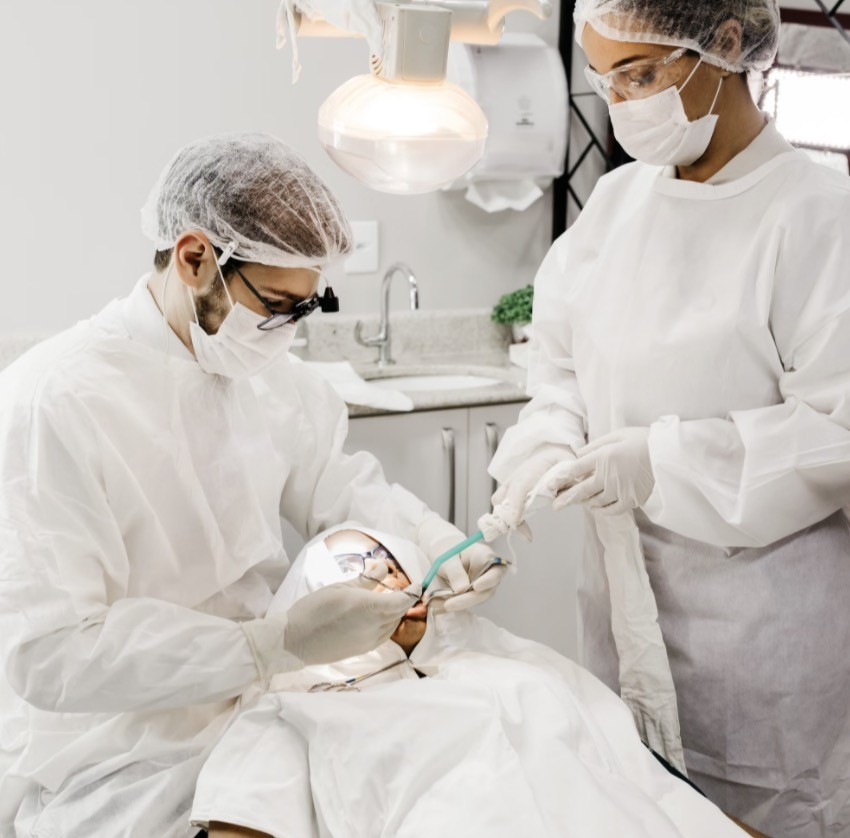In the dynamic realm of dental marketing, transcending the limitations of organic search engine optimization necessitates a comprehensive digital marketing strategy, with a particular emphasis on Pay-Per-Click (PPC) advertising for dental practices.
A Brief Overview of Dental PPC
Dental Pay-Per-Click (PPC) is a distinctive online marketing model where fees are incurred only when your advertisements are engaged, effectively buying visits to your site instead of garnering them through organic means. This contrasts with other advertising models that charge based on the number of impressions or views of your ads.
Google Ads is the premier channel for search engine advertising, offering unparalleled reach and effectiveness for dental services.
The Efficacy of Google Ads for Dental Practices
For dental practices, Google Ads emerge as a lucrative avenue for attracting new patients, necessitating a strategic approach in targeting the correct audience, selecting appropriate keywords, crafting compelling ad narratives, and optimizing landing pages for conversion to ensure the highest return on investment.
Mastering Google Ads for dental services demands a strategic, informed approach to unleash its full potential as a marketing powerhouse.
- Highlight Your Unique Selling Proposition (USP)
Unveiling your practice’s Unique Selling Proposition (USP) is crucial yet often neglected in dental PPC campaigns. Your advertising must draw in patients and distinctly communicate what sets your practice apart from the competition, whether it be your exemplary service, unique offerings, or special accommodations.

For instance, for a client in the dental sector, we pinpointed several key USPs:
- Over 150 glowing reviews
- Availability of weekend and evening slots
- Solutions for those without insurance
- Provision for same-day bookings
- Bilingual services
- Membership discounts
- A special introductory offer for new patients
- Organizational Excellence in Your Ad Account
The significance of maintaining an organized Google Ads account cannot be overstated. Such meticulous organization facilitates efficient management, precise tracking and reporting, cost-effective experimentation, and reduced click expenditure.
To optimize your account, focus on these four areas:
Campaign Types: Maintain separate campaigns for search and display to streamline management.
Networks: Experiment with including Search Partners to discover what suits your campaign best. Employ the Segment > Network (with search partners) filter for comprehensive data analysis.
Device Preferences: Determine which devices yield the best results for your campaigns and adjust your strategy accordingly.
Bid Strategy: Employ automated bid strategies, like Enhanced Bidding (eCPC), to minimize management efforts while optimizing campaign performance. This strategy fine-tunes your bids to leverage keywords more likely to lead to conversions and reduce spending on less effective ones.
By embracing these strategies with a keen eye on uniqueness and strategic depth, your dental PPC campaigns can achieve unparalleled success, driving patient engagement and fostering practice growth.
Diving into the realm of keyword stratagem offers a myriad of paths, but let’s hone in on two pivotal aspects for now:
- Experiment with geographically anchored keywords.
- Probe into niche keywords with a local twist.
Geographical Keywords
The trend of utilizing geographic queries on Google has seen a notable uptick. For instance, a Phoenix resident in need of dental services might utilize searches such as:
- Dentist in Houston
- Houston Dentist
- Dentist near me
- Dental Clinic near me

Incorporating these broad geographical keywords is a cornerstone strategy for your dental PPC endeavors.
Niche Keywords with a Local Flavor
While specific keyword phrases might not garner the vast search volumes of their geographical counterparts, they hold distinct advantages:
- Scarcer competition
- Reduced cost-per-click
- Enhanced return on investment, particularly for premium services
Such niche keywords could include "dental implant specialist in Phoenix" or "expert teeth whitening nearby."
Additional Insights on Keywords:
1. Segment keywords into separate ad groups for varied advertisements. one ad could target dental hygiene keywords. At the same time, another might concentrate on aesthetic dentistry terms such as teeth brightening, veneers, and dental reconstructions.
2. Pinpoint negative keywords to filter out unrelated search inquiries, refine your target demographic, and amplify your outcomes.
Leveraging Ad Extensions for Expanded Character Space
With the character constraints of dental PPC ads, sharpening your copywriting prowess, igniting creativity, and conveying your value succinctly is imperative. Google’s ad extensions offer a clever solution to expand your ad’s footprint with pertinent and valuable details. Some extension options include:
- Contact number
- Physical address (linked to Google Maps)
- Direct links to specific pages beneath your ad
- Google reviews score
- Highlight special offerings
Optimize Ads for Telephonic Inquiries
Here’s an intriguing insight: ad clicks incur costs, while phone inquiries do not.

While funneling leads to your website is crucial, you can elevate your ROI significantly if your advertisement encourages a direct call. Facilitate this path with the following strategies:
- Prominently display your contact number across all advertisements.
- Activate your Call Extensions solely during business hours to avoid missed opportunities.
- Implement a dynamic call tracking system to bridge phone inquiries to specific Google Ads campaigns. Additionally, Google’s complimentary Forwarding Number feature (widely available) allows for call tracking when visitors reach your site, albeit requiring supplementary coding for optimal functionality.
Crafting Optimal Landing Pages
For each advertisement, tailor a specific landing page on your website. This page should seamlessly extend the narrative of your ad.
The initial step is to catch interest with your ad, but the journey doesn’t end there—conversion is the goal. Whether it’s to encourage a call, a form submission, or an online booking, your landing page is crucial in facilitating this transition.
Aim to preclude any visitor doubts such as:
- Misalignment with the expected content, prompting a swift exit
- Suspicions of deceit
- Perceptions of unprofessionalism
Ensure a coherent flow from advertisement to a landing page; whether it’s detailing a service like teeth cleaning or highlighting a new patient offer, the landing page must elaborate and guide the next steps.
Embrace Continuous Evolution: Test, Track, and Tweak
The essence of a dynamic PPC strategy in dentistry lies in perpetual experimentation. Defining, monitoring, and refining based on key performance metrics is non-negotiable.
Vital metrics include:
- Click-through rates
- Conversion outcomes from clicks
- Cost-effectiveness per click
- Frequency of form completions
- Requests for driving directions
- Volume of phone inquiries
- Search term effectiveness
The metrics landscape demands diligent analysis to ensure the profitability of your PPC campaigns.
Exploring Beyond Google Ads
Though Google Ads reign supreme in dental PPC, don’t overlook Bing Ads and Facebook Ads as potent avenues for expanding your reach.
Budgeting for PPC in Dental Practices
Determining your PPC expenditure lacks a universal formula. It should instead reflect:
- Operational targets – Consider your capacity and the influx of new patients you can accommodate.
- Competitive landscape – A more substantial investment in PPC may be necessary for visibility in densely populated dental markets.
- Expertise and strategy – Practices adept in keyword selection and campaign optimization can achieve more with less, even in competitive settings.
A general guideline suggests allocating 5-8% of annual revenue towards marketing endeavors, including PPC advertising.

